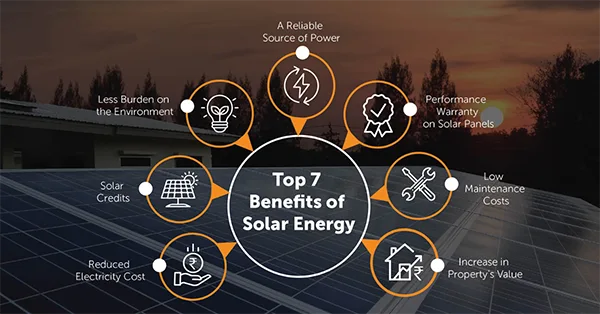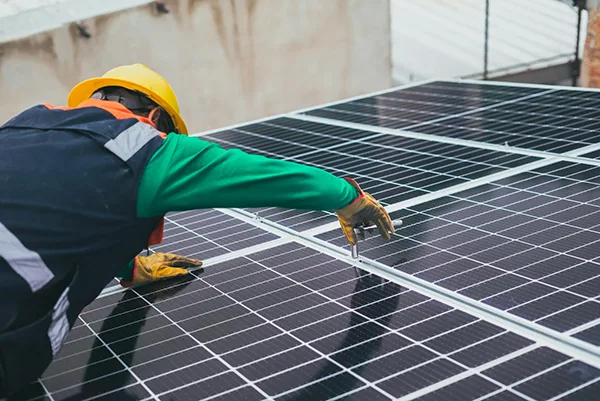You will want to analyze your energy usage. Installers in your area generally have a decent background with estimating system size based on the size of your home, planned future additions, and monthly electric cost.
KEY TAKEAWAYS
- Assess energy needs to determine the correct solar panel system size efficiently.
- Choose panel type based on budget, space, and energy efficiency goals.
- Roof orientation, shade, and condition significantly affect solar panel performance.
- Hire experienced, reputable installers to ensure long-term system efficiency and reliability.
- Regular monitoring and maintenance prevent malfunctions.

According to the U.S. Department of Energy, residential solar panel installations are increasing by more than 30% annually, which is evidence of the increasing interest in a long-term renewable energy option.
The choice of which solar panel system to use is not purely about which company is most advertised and/or the lowest price. Consumers have to consider a variety of factors when contemplating solar options: what are their energy requirements? Is there ample roof space for the selected solar panels? What climate zone is their residence in? What type of solar panels will be available? Who is the installer?
In this article, you will learn how to evaluate these core elements involved in investing in a solar energy system for your home, and ultimately how to make a fully informed decision.
You’ll have to check out what your energy needs are and how much power you need, as this is the crucial step in choosing the best solar system. Think about your average monthly costs, and based on that, you will solve this issue quickly. Below you can see the benefits of solar energy.

You will know the size of the solar panel system your house needs and will not be wrong with this calculation. For small homes (1–2 bedrooms), a 2–4 kW system is ideal. Medium-sized homes (3–4 bedrooms) are better suited to a 5–8 kW system. For larger homes with 5+ bedrooms, a 9–12 kW system is best.
Consider how your energy needs might change in the future, such as if you expand your house. A trained solar installer you can find at RebateSpy.com.au will do an energy assessment and suggest the best size system for you. Knowing how much energy you need can help you save money, be more efficient, and get the most performance from your solar panels.
FUN FACT
The first solar panel was created in 1883 by American inventor Charles Fritts, who coated selenium with a thin layer of gold.(Source: Wikipedia)
Monocrystalline panels are formed of single-crystal silicon and have the maximum efficiency. They also look sleek and black, so they are great for houses with small roofs. Polycrystalline panels cost less but are less efficient, requiring more space to generate the same energy. They’re recognizable by their blue, speckled look.
Thin-film panels are the least efficient and are typically used in big installations and buildings, as they are light and flexible. The kind you choose will depend on how much money you have, how much space you have, and what your energy objectives are. Polycrystalline panels cost less but are less efficient, requiring more space to generate the same energy. They’re recognizable by their blue, speckled look.

Many things influence what kind of solar panel system you should choose, and your roof is one of them. You will have to consider features like direction, orientation, shading, and your roof’s condition and material if you don’t want to make some costly mistakes.For example, your roof’s orientation greatly affects how much sunlight it gets during the day and how much energy it can generate.
Shade from nearby objects can cause a huge drop in efficiency. Devices such as solar pathfinders or a professional shade analysis can help to locate problems. Besides that, your roof and its condition matter greatly: asphalt shingles, metal, and tile are easiest to work with, while old or weak materials can cause issues and require more work.
Ground-mounted systems can also be used as an alternative when your roof is not suitable. All of these are the reasons why you should conduct great research, which will help you pick the best option.
Having a reliable and experienced installer is crucial, as you want your solar panel system set up in the best way possible. So, you have to research a bit and find someone who has a proven track record and successful experience in this job. This will ensure you will get the solar panel system properly installed, and it will function the best way for many years to come.
The installation of your solar panel system doesn’t end with just having experts at your home, installing it, and leaving. You’ll need to regularly monitor its performance, spot any malfunctions, and address them promptly to avoid bigger problems. These steps also save money and energy, reducing your environmental impact.
You can always schedule regular check-ups and maintenance to make sure everything is okay and ensure your peace of mind.
Researching the right solar panel system for your home is the only way to find the best one for your needs. By following these tips we’ve shared, it will be much easier to meet your home’s needs.
You will want to analyze your energy usage. Installers in your area generally have a decent background with estimating system size based on the size of your home, planned future additions, and monthly electric cost.
Monocrystalline panels will be the best panels if you are seeking the most efficient technology with the longest lifetime. Polycrystalline panels are the lowest cost option, while thin film panels work best if you have a large, flexible space with many roofing options.
You should consider and then evaluate the direction of the roof, how much shade the roof gets, what the roof is made of, and the condition of your roof. You will want to have the best environmental conditions for sun and long-term performance of your solar system.
